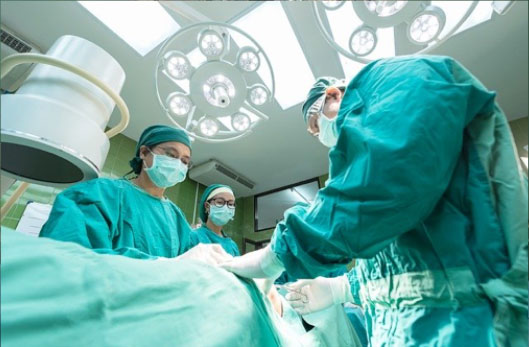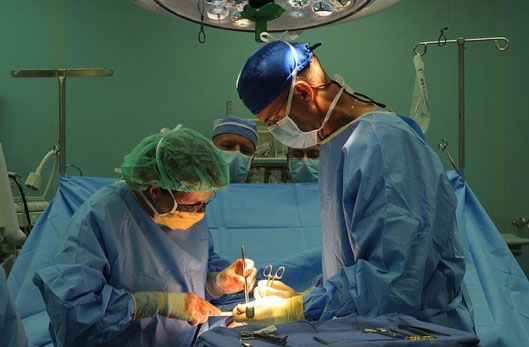CALL TODAY 646-846-1136 | EMAIL
What Training Do The Top General Surgeons Receive?
General surgery involves post-residency training and specialty training. All General Surgeons are highly skilled and highly trained professionals. General surgeons are knowledgeable about the entire body and are skilled in performing accurate procedures. We can consider general surgeons the leaders of advanced disciplinary teams, health care systems, and hospitals. Their responsibility is to organize and perform complex operative care, whether in trauma, transplant, oncology, or GS.
Job Description of General Surgeon
General Surgeons carry out operations on parts of the body such as the colon, liver, gastrointestinal tract, endocrine system, and other main parts of the human body. Surgeons, for the most part, work all day and may often work extended periods of time at irregular shifts. In any event, when they are not in their work environment, surgeons must be accessible if the need arises. This means they can be approached to come into work anytime on the off days. These experts work in hospitals and other health centers.
Responsibilities and Duties of a General Surgeon
General Surgeons are responsible for the operation room, and supervising other medical experts to guarantee everything is done effectively. Like other medical experts, surgeons are liable for analyzing patients, diagnosing, and suggesting the best course of action. Some General Surgeons are additionally answerable for conducting and directing research in the field.
As a General Surgeon, a portion of the techniques you’ll perform includes bariatric surgeries, thyroidectomies, colonoscopies, and gallbladder or appendix removal. A portion of these surgeries are insignificantly invasive and are performed utilizing laparoscopic techniques. Others, for example, organ transplantation or removal, can be invasive.
Subspecialties
General Surgeons additionally have the ability to fan out into various specialties, for example, organ transplantation, pediatric surgery, or plastic surgery. One of the recent types of specialties includes performing surgeries, for example, bariatric surgeries and LAP-BAND, helping patients with obesity. Plastic surgeons can perform procedures that run from augmenting breasts to repairing injuries and wounds of the skin. Many General Surgeons additionally work with cardiovascular specialists on procedures including the heart; for example, heart transplant surgery and valve fix.

(Source)
Education and Training Required for General Surgeons
If you want to become a General Surgeon, you must:
- Complete your graduate and undergraduate education (a medical degree and a baccalaureate degree)
- After that, complete a five years residency program in general surgery. This consist of specialized knowledge about the vascular (circulatory) system, surgical oncology (follow-up with cancer patients, rehabilitation, surgical therapy, surveillance, management of screening), head and neck, endocrine system, critical care, comprehensive trauma management, soft tissue, skin, breast, alimentary tract (digestive organs), and abdomen.
- There are different requirements of the residency program for each specialty area, such as thoracic surgery is about five years of general surgery and also contains two years of practice in thoracic and cardiovascular surgery.
Licensure
Graduating from a medical school doesn’t consequently make you a licensed surgeon. You’ll have to earn licensure by passing the Comprehensive Osteopathic Medical Licensing Exam or the United States Medical Licensing Examination, depending upon whether you graduated with a Doctor of Osteopathic Medicine or Doctor of Medicine. These three-section exams evaluate your capacity to apply scientific or medical knowledge towards taking care of the patients and advancing health in a clinical limit. Additionally, if there are any other specific requirements you have to satisfy in your state, you’ll have to confirm with the state clinical licensing board.
Residency
After graduating from medical school, you’ll have to enroll for a five-year general surgery residency program. As an occupant, you’ll have chances to help with a variety of surgeries, just as to give pre-and post-operative consideration on patients. You can finish various clinical rotations in areas, for example, anesthesia, critical care, pediatric surgery, thoracic surgery, and cardiac surgery. You may, likewise, be required or urged to take part in the research.

(Source)
A few things to consider
None of this ought to prevent you from pursuing your dreams to be a surgeon. However, it’s critical to know about the professional risks and what you can do to control them. Meditation, a healthy diet, regular exercise, and other things, for example, therapy, counseling, or even simply talking with your loved ones, will help reduce feelings of anxiety. So remember, despite the fact that a surgeon saves the lives of different people, taking care of yourself will be just as significant.
Conclusion
Your journey to turn into a surgeon will be challenging, long, but one of the most rewarding things you’ll ever do. You’ll utilize your hard-earned expertise to assist patients with living better lives while improving the surgical profession for ages of patients to come.
If you are looking for professional general surgeons for your condition, kindly contact us at 646-846-1136. You can also visit our website to book an appointment online at https://lenoxhillminimallyinvasivesurgery.com/.

